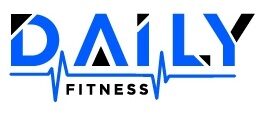Patient engagement plays a pivotal role in the evolving landscape of modern healthcare. With the shift toward value-based care models, providers increasingly recognize that informed, involved patients contribute significantly to better outcomes, reduced costs, and overall satisfaction. Comprehensive health management services, like those offered by partners in healthcare innovation, can transform how healthcare professionals and organizations approach patient engagement.
This blog will explore the importance of patient engagement, highlight the frameworks offered by health care management services, and provide actionable insights for healthcare professionals striving to enhance patient involvement in their care journeys.
Why Patient Engagement Matters in Modern Healthcare
Better Health Outcomes Through Active Participation
Engaged patients are more likely to adhere to treatment plans, attend regular check-ups, and make lifestyle adjustments recommended by their care teams. A 2022 study published in the Journal of Patient Experience found that patient engagement interventions significantly reduced emergency room visits and hospital readmissions. Simply put, when patients are active participants in their health management, they are more likely to achieve better health outcomes.
Improved Patient Satisfaction and Trust
When patients feel heard and involved, their trust in healthcare providers grows. Trust is a fundamental aspect of the provider-patient relationship, and it plays a critical role in ensuring patients remain loyal to a specific healthcare organization. Comprehensive health management strategies that include patient-oriented approaches, such as shared decision-making and clear communication, can elevate levels of satisfaction and trust.
Financial and Operational Benefits for Healthcare Providers
For healthcare organizations, better patient engagement isn’t just a clinical priority—it’s a financial one. Effective engagement strategies often lead to reduced no-show rates, improved compliance with preventive screenings, and lower treatment costs for chronic conditions. Additionally, healthcare professionals benefit from operational efficiencies as patients take a more active role in managing their health.
What Are Comprehensive Health Management Services?
Comprehensive health management services encompass a range of tools, strategies, and support systems designed to streamline patient care while improving engagement and outcomes. These services leverage a combination of technology, coordination, and personalized support to create a holistic approach to care.
Core Components of Health Management Services
1. Patient Support and Education
Educational resources tailored to a patient’s unique health conditions equip them with the knowledge they need to make informed decisions. Whether delivered through digital tools or in-person consultations, these materials are essential for building confidence and understanding.
2. Chronic Disease Management
Chronic conditions like diabetes, hypertension, and asthma often demand close monitoring and consistent engagement between patients and providers. Health management services integrate data analytics and remote monitoring to help patients maintain control over their conditions.
3. Care Coordination
Patients often interact with multiple healthcare providers, from primary care physicians to specialists. Comprehensive health care management ensures that care is well-coordinated, helping to prevent redundant tests or treatments and ensuring seamless transitions across providers.
4. Telehealth and Remote Monitoring
Telehealth solutions and wearable technology empower patients to monitor their health conditions from the comfort of home. This helps increase accessibility and continuity while reducing unnecessary in-clinic visits.
5. Data-Driven Insights for Personalization
Data analytics can inform personalized care plans designed to meet the unique needs of each patient. Insights into patient behaviors, preferences, and conditions enable care teams to tailor their approach and improve overall outcomes.
How to Leverage Comprehensive Health Management for Better Patient Engagement
1. Utilize Patient-Centric Technology
Digital tools play a vital role in modern healthcare. Mobile apps, patient portals, and wearable devices allow patients to track their health profiles, schedule appointments, and receive reminders. For instance, implementing a patient engagement portal integrated with partners healthcare solutions ensures seamless communication between providers and patients.
2. Prioritize Education and Clarity
Simplify medical jargon and use accessible language when providing instructions or sharing test results. Engaging patients with clear, concise guidance makes understanding their care plans easier and encourages adherence. Health management platforms often come equipped with educational modules to support this process.
3. Foster Collaboration Through Shared Decision-Making
Empowering patients in their treatment decisions builds trust and involvement. Shared decision-making allows patients and providers to work together to determine the best course of action. This approach underscores the importance of patient input, motivating patients to follow through with prescribed care.
4. Cultivate a Sense of Community
Comprehensive health care management services can create opportunities for patients to connect with peers who share similar health challenges. Support groups, community forums, or virtual events foster relationships, providing emotional support and a platform for patients to exchange tips or success stories.
5. Monitor and Adapt Through Feedback
Collecting actionable feedback from patients after appointments or treatment phases allows providers to continuously adapt and improve. Advanced health management tools enable real-time feedback tracking, ensuring that healthcare strategies remain dynamic and focused on the patient’s evolving needs.
6. Integrate AI and Predictive Analytics
The application of artificial intelligence (AI) in health care management offers groundbreaking possibilities for patient engagement. Predictive analytics can forecast potential health risks, enabling providers to proactively address issues before they escalate. This proactive approach not only enhances engagement but also aligns with value-based care goals.
Challenges and Considerations in Implementing Patient Engagement Strategies
While comprehensive health management services hold immense potential, challenges persist. Healthcare providers must prioritize data security and privacy, ensuring patients feel confident in sharing personal information. Additionally, effective implementation requires adequate training for staff to fully utilize technological advancements and engage patients in meaningful ways.
Efforts should also focus on reducing disparities in access to healthcare technologies. Providers must ensure that patient engagement tools are inclusive and accessible to all, including older adults and those in underserved communities.
Building a Collaborative Future with Partners Healthcare
Partnering with leading health management service providers ensures access to cutting-edge tools and support necessary to revolutionize patient engagement. Organizations like partners healthcare specialize in delivering comprehensive solutions tailored to diverse patient populations. These collaborations empower healthcare professionals to focus on what they do best—providing exceptional care.
Final Thoughts: Putting Patients at the Heart of Healthcare
Improving patient engagement is no longer optional—it is a crucial element of modern healthcare that delivers tangible health and operational benefits. Comprehensive health management services offer a path forward, leveraging technology, personalization, and collaboration to build a more connected, efficient, and patient-centered healthcare ecosystem.
Healthcare professionals and organizations can stay ahead by investing in solutions that blend expertise with advanced tools. Want to learn more about deploying these services in your practice? Explore our specialized partners healthcare solutions and start transforming patient engagement today.





